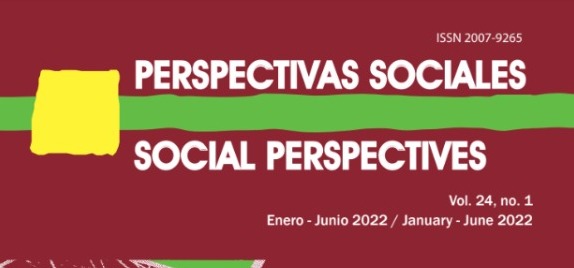El estudio de la Epistemología del Trabajo Social Contemporáneo desde la intervención en lo social como práctica científica.
Keywords:
Epistemology, intervention, practice, contemporary, normativityAbstract
Usually the epistemology of Social Work has been analyzed from the social sciences. Our proposal is to look at social intervention from a perspective of scientific practice in order to understand the epistemic structures of Contemporary Social Work and from that to understand how social interventions actually occur. We analyze what is the sense of thinking about the study of the epistemology of our discipline from this viewpoint focused on intervention and what are the advantages that there are in contrast with other positions on the epistemic study of Social Work that focus on the influence of social sciences, their theories and research methods relegating Social Work to a secondary position. The aim is to correct this situation by putting our discipline at the center. It is proposed to use a methodological approach from three elements: the reading of social reality, the positioning in front of it and the objectification from it in the scientific practice of Contemporary Social Work. The notion of scientific practice and the importance of understanding how intervention in the social sphere gives us tools to understand how a project of this nature would be structured and what kind of questions are worth asking to address the study of an epistemology focused on intervention. The approach to the epistemology of Social Work from this perspective contributes to deepen our own epistemology to explain how intervention in the social is in fact configured. Emphasis is placed on the need to recover the normative dimension of practice and the epistemic standards that derive from this. This makes it possible for us to improve our models and strategies of intervention in the future, as well as to put forward theoretical-methodological proposals that set out realistic epistemic standards in terms of their operativity and in terms of the capacities of the professional-subjects who implement them.
Downloads
References
Barceló, A. (2019) Falibilidad y normatividad: un análisis filosófico de la suerte. México: Cátedra.
Brandom, R. (2005). Hacerlo explícito: Razonamiento, representación y compromiso discursivo. Barcelona: Herder.
Castro, Martín, Chávez, Julia y Vázquez, Silvia (coord.) (2014). Epistemología y Trabajo Social. México: Editorial SHAAD, Tomo II.
Eraña, A. (2003). Normatividad epistémica y estructura heurística del razonamiento. México: Crítica: Revista Hispanoamericana de Filosofía, 35 (104), 69-108. http://www.jstor.org/stable/40104911
Escolar, C. y Travi, B. (2010). Prácticas profesionales, modelos de intervención y proceso de producción de conocimientos. México: VI Época (1), 74-89.
Estrada, V. (2011). Trabajo Social, intervención en lo social y nuevos contextos. Prospectiva: Revista de Trabajo Social e Intervención Social, 16, 21-53.
Evangelista, E. (2018). Aproximaciones al Trabajo Social Contemporáneo. México: Editorial Entorno Social.
Fink, A. (1942). The field of social work. New York: H. Holt.
Galeana de la O, S. y Tello, N. (2010). Fragilidad y debilidad del discurso en Trabajo Social: Ausencia de la construcción desde la intervención social. México: VI Época (1), 22-35.
Martínez, S. (2008) Un lugar para las prácticas en una filosofía de la ciencia naturalizada, en Esteban, J. y Martínez, S. (comp.) (2008). Normas y prácticas en la ciencia. México: Instituto de Investigaciones Filosóficas.
Martínez, S. F., & Huang, X. (2015). Hacia una filosofía de la ciencia centrada en prácticas (Primera edición). Bonilla Artigas Editores.
Muñoz, G. y Larraín, D. (2019). Interseccionalidad y los programas sociales pro-in-tegralidad: lecturas críticas sobre intervención en lo social. Tabula Rasa, 30, 153-170. https://doi.org/10.25058/20112742.n30.08
Ornelas A. y Brain, M. L. (2015). Influencia de las producciones teórico-metodológicas de Trabajo Social en la formación de trabajadores sociales en la Escuela Nacional de Trabajo Social: El caso de la práctica comunitaria, periodo 2005-2015. Ciudad de México: ENTS-UNAM.
Paredes, J.P. (2014). Pensamiento epistémico y conocimiento social: Emergencias y potencialidades en la investigación social. Revista de Estudios Sociales, 48, 125-130. https://doi.org/10.7440/res48.2014.10
Rheinberger, H. (1997). Towards a History of Epistemic Things. Oxford: Oxford Press.
Richmond, M. (1917). Social Diagnosis. Nueva York: Russell Sage Foundation.
Rouse, J. (1996). Engaging Science: How to Understand its Practices Philosophically. Estados Unidos de América: Cornell University Press.
Rouse, J. (2002). How Scientific Practices Matter: Reclaiming Philosophical Naturalism. Chicago: The University of Chicago Press.
Tello, N. (2010). Ires y venires de la intervención de Trabajo Social. México: VI Época, (1), 60-71.
Tello, N. y Ornelas, A. (2017). Estrategias y modelos de intervención de trabajo social: aportes para su construcción. ENTS-EOPSAC. México.
Urbalejo, C. (2018). Los fundamentos teórico-metodológicos del trabajo social a través de su construcción histórica. México: Universidad Nacional Autónoma de México, Escuela Nacional de Trabajo Social. https://132.248.9.195/ptd2018/ mayo/0774393/Index.html
Zemelman, H. (2011). Configuraciones críticas. México: Siglo XXI Editores.

Downloads
Published
How to Cite
Issue
Section
License
Copyright (c) 2022 Cristian Urbalejo

This work is licensed under a Creative Commons Attribution 4.0 International License.




